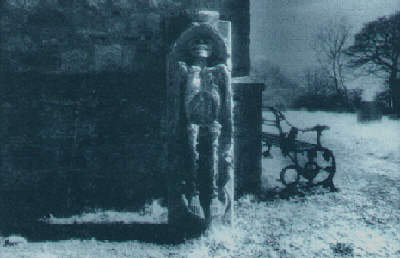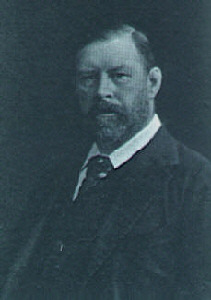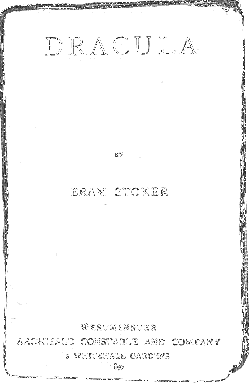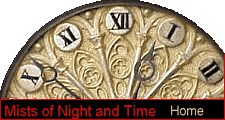|
November 8, 1847 - April 20, 1912
Bram Stoker -- christened as "Abraham" -- was born near Dublin, Ireland to Abraham and Charlotte Stoker. He was sickly as a child, and not expected to survive. Confined to bed during his early years, his convalescence exposed him to tales of Irish folklore his mother told him, and to horrible details of the 1832 cholera epidemic in Sligo. He obviously survived, and even became a fine athelete in young adulthood. His personality was basically a shy one. He preferred reading to the company of people and knew he wanted to be a writer early on. His education at Trinity College began in November of 1864.
No written record of their association has been found, but Stoker did pay Vambery a compliment in the book by having Professor Van Helsing mention his "friend, Arminius, of Buda-Pesh [Budapest] University". Thus we have the "Grandfather" of vampires, and all his luminously dark descendents, appearing in prose, poems, films and all forms of art, appearing wherever imagination lives. |
|
"DRACULA'S GUEST" "DRACULA" QUOTES FROM "DRACULA" |
![]()
|In a Welcoming Vein: Vampire Renaissance map|
+ + +
|The Entrance Gate|

 "Dracula", deemed the paramount pinnacle of Gothic writing, was a turning point for vampiric literature. It paved over the path of muddy melodrama preceding it, insuring vampires as a fixture in western folklore to this day and beyond.
"Dracula", deemed the paramount pinnacle of Gothic writing, was a turning point for vampiric literature. It paved over the path of muddy melodrama preceding it, insuring vampires as a fixture in western folklore to this day and beyond.
 Stoker's major work, of course, is "Dracula". A long-held belief that he wrote the work in relative haste, beginning in 1895, has been disproved. He apparently started his research as early as 1890. Not only was Stoker inspired by Le Fanu's
Stoker's major work, of course, is "Dracula". A long-held belief that he wrote the work in relative haste, beginning in 1895, has been disproved. He apparently started his research as early as 1890. Not only was Stoker inspired by Le Fanu's 

